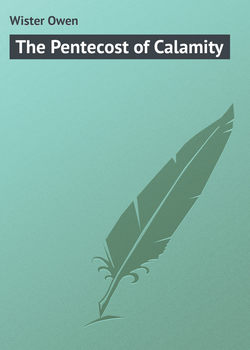Читать книгу The Pentecost of Calamity - Wister Owen - Страница 2
I
ОглавлениеBy various influences and agents the Past is summoned before us, more vivid than a dream. The process seems as magical as those whereof we read in fairy legends, where circles are drawn, wands waved, mystic syllables pronounced. Adjured by these rites, voices speak, or forms and faces shape themselves from nothing. So, through certain influences, not magical at all, our brains are made to flash with visions of other days. Is there among us one to whom this experience is unknown? For whom no particular strain of music, or no special perfume, is linked with an inveterate association? Music and perfumes are among the most potent of these evocatory agents; but many more exist, such as words, sounds, handwriting. Thus almost always, at the name of the town Cologne, the banks of the golden stream, the German Rhine, sweep into my sight as first I saw them long ago; and from a steamer's deck I watch again, and again count, a train composed of twenty-one locomotives, moving ominous and sinister on their new errand. That was July 19, 1870. France had declared war on Prussia that day. Mobilization was beginning before my eyes. I was ten.
Dates and anniversaries also perform the same office as music and perfumes. This is the ninth of June. This day, last year, I was in the heart of Germany. The beautiful, peaceful scene is plain yet. It seems as if I never could forget it or cease to love it. Often last June I thought how different the sights I was then seeing were from those twenty-one locomotives rolling their heavy threat along the banks of the Rhine. And, for the mere curiosity of it, I looked in my German diary to find if I had recorded anything on last June ninth that should be worth repeating on this June ninth.
Well, at the end of the day's jotted routine were the following sentences: "I am constantly more impressed with the Germans. They are a massive, on-going, steady race. Some unifying slow fire is at work in them. This can be felt, somehow." Such was my American impression, innocent altogether, deeply innocent, and ignorant of what the slow fire was going to become. So were the peasants and the other humbler subjects of the Empire who gave me this daily impression; they were innocent and ignorant too. Therefore is the German tragedy deeper even than the Belgian.
On June twenty-eighth I was still in the heart of Germany, but at another beautiful place, where further signs of Germany's great thrift, order and competence had met me at every turn. It was a Sunday, cloudless and hot, with the mountains full of odors from the pines. After two hours of strolling I reëntered our hotel to find a group of travelers before the bulletin board. Here we read in silence the news of a political assassination. The silence was prolonged, not because this news touched any of us nationally but because any such crime must touch and shock all thoughtful persons.
At last the silence was broken by an old German traveler, who said: "That is the match which will set all Europe in a blaze." We did not know who he was. None of our party ever knew. On the next morning this party took its untroubled way toward France, a party of innocent, ignorant Americans, in whose minds lingered no thought of the old German's remark. That evening we slept in Rheims. Our windows opened opposite the quiet cathedral. It towered far above them into the night and sky, its presence filling our rooms with a serene and grave benediction. Just to see it from one's pillow gave to one's thoughts the quality of prayer.
Two days later I took my leave of it by sitting for a silent hour alone beneath its solemn nave. I can never be too glad that I bade it this good-by. Not long afterward – only thirty-two days – we recollected the old German's remark, for suddenly it came true. He had known whereof he spoke. On August 1, 1914, Europe fell to pieces; and during August, 1915, in a few weeks from to-day, the anniversaries will begin – public anniversaries and private. These, like perfumes, like music, will waken legions of visions. The days of the calendar, succeeding one another, will ring in the memories of hundreds and thousands like bells. Each date will invest its day and the sun or the rain thereof with special, pregnant relation to the bereft and the mourning of many faiths and languages. Thus all Europe will be tolling with memorial knells inaudible, yet which in those ears that hear them will sound louder than any noise of shrapnel or calamity.
